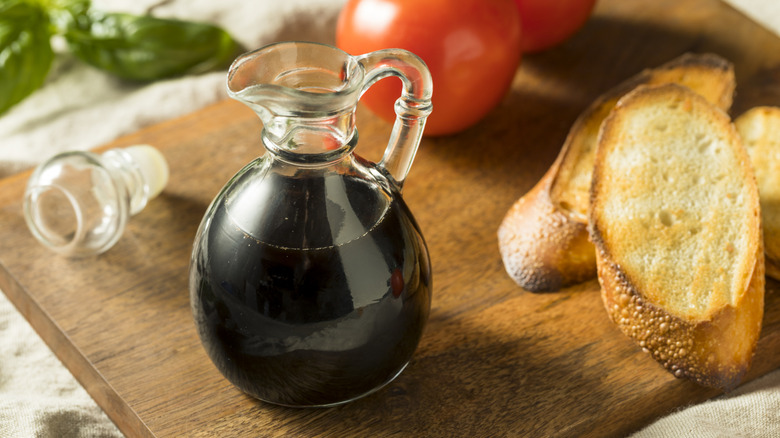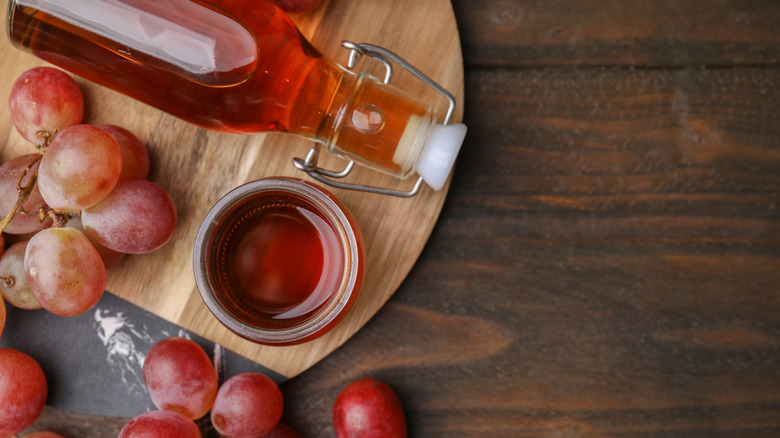Are Red Wine Vinegar And Balsamic Interchangeable?
Substitutions happen to even the best home cooks — whether the result of dietary restrictions, flavor preferences, or grocery neglect, sometimes you just have to look for an alternative. There are a few ingredients that refuse an adequate replacement (looking at you, baking soda), but others are blessedly interchangeable. Luckily, red wine vinegar and balsamic fall into the latter category and can be substituted — mostly. Angelo Sosa, chef of the restaurants Tía Carmen and Carmocha in Indian Wells, California, as well as of Kembara and the original Tía Carmen in Phoenix, Arizona, told Food Republic that there's an exception to the easy vinegar substitution rule.
Balsamic vinegar is rich, sweet, and a little bit tart — while red wine vinegar is sharper, fruitier, and contains a small amount of alcohol. Despite the disparity in taste, the vinegars can typically be substituted one for one in a recipe. Sosa recommended, though, that this exchange only happen with certain types of balsamic. "If I were to use balsamic vinegar instead of red wine," he told Food Republic, "I wouldn't use aged balsamic; it would be too sweet versus being acidic like red wine vinegar."
Substituting sweetness for acidity (and vice versa)
Unique among the collection of different vinegars, traditional balsamic vinegar is very regulated. It can only be made in Reggio Emilia and Modena, Italy, and starts out with a product called grape must — grapes pressed with the juice, seeds, skin, and stems all included. Real balsamic vinegar is aged for at least 12 years and will always hold two designations on the bottle: Aceto Balsamico Tradizionale and Denominazione di Origine Protetta (D.O.P.). Because of its aging process, it comes out quite sweet and comparatively low in acidity; it also isn't meant for cooking because heat destroys its flavor. As Angelo Sosa advised, it isn't an accurate substitution for red wine vinegar.
Even some lower-grade balsamic vinegars, without the official designations, may still be marked "aged" though. These vinegars will also be sweeter and less well suited to substitution, but non-aged balsamic works in place of red wine vinegar — that is, if you aren't cooking something delicate that can be easily overpowered. "I believe this [substitution] is somewhat universal in its usage," said Sosa, "though in moderation with lighter ingredients." If the dish is too delicate, balsamic will quickly overpower it, so use a judicious hand. You can always add more, after all.
If you're going the other way — using red wine vinegar in balsamic's place — it can be helpful to make a small addition. Mimic balsamic's sweetness by adding ½ teaspoon of sugar for every tablespoon of red wine vinegar. Brown sugar in particular will imitate the molasses flavor of balsamic, but white sugar can also introduce the right sweetness.


